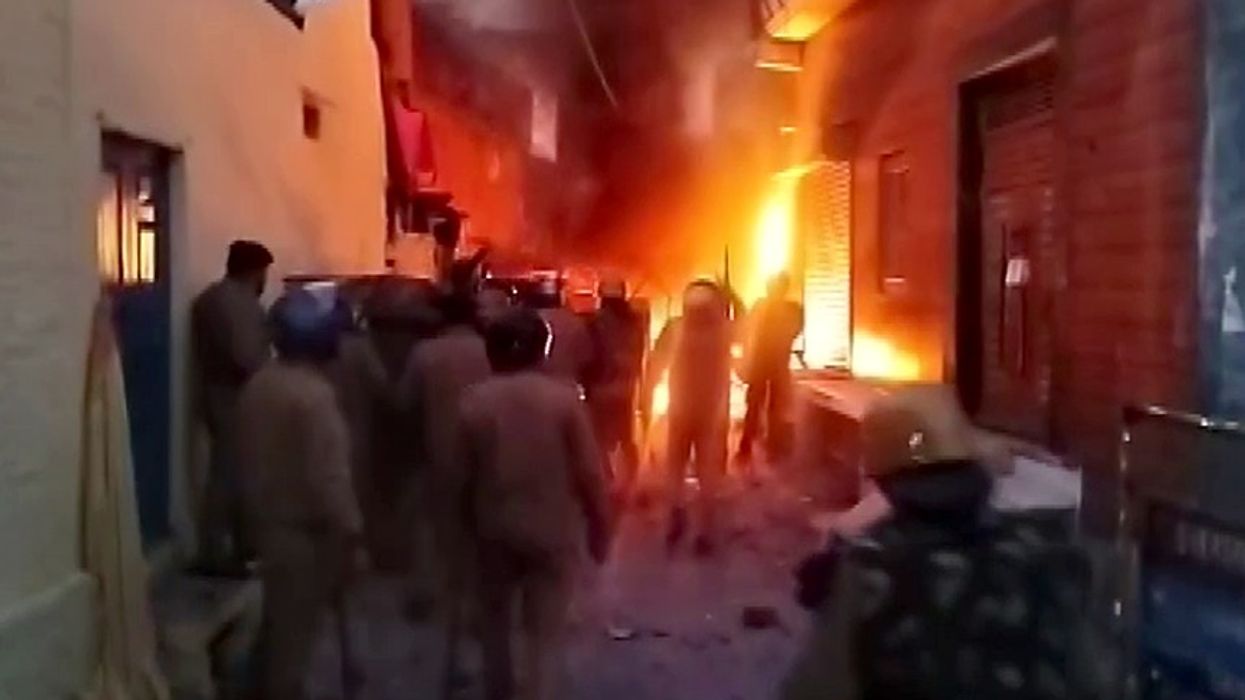THREE people were killed in India and dozens more injured after religious clashes sparked by the destruction of a madrassa, officials said Friday (9), the latest in a spate of demolitions targeting Islamic structures.
Hindu nationalist groups have been emboldened in their campaign against Muslim religious structures since prime minister Narendra Modi took office a decade ago.
Authorities in the northern state of Uttarakhand had bulldozed the Islamic school and an adjoining prayer site on Thursday (8), claiming they had been built without permission.
Police said that Muslim protesters threw stones at them in the protests that followed, prompting them to fire tear gas in response.
Three people had been killed in the clashes in Haldwani district, police spokesman Nilesh Anand Bharne told reporters.
District official Vandana Singh told reporters that dozens of others were being treated at "various hospitals".
"Orders have been given to shoot the rioters on sight," she added.
Footage of the clashes posted on social media showed Hindu residents of the district chanting anti-Muslim slogans and throwing stones at the crowd.
Authorities in Haldwani suspended internet services, closed schools, imposed a curfew and banned large gatherings after the violence broke out.
Security forces were also rushed into the area from other parts of the state to contain the unrest, officials said.
Uttarakhand chief minister Pushkar Singh Dhami said the government would punish anyone found to have participated in the unrest.
"Anyone who attempts to disturb the peace will not be spared," he said in a Friday social media post.
Calls for India to enshrine Hindu supremacy in law have rapidly grown louder since Modi took office in 2014, making the country's roughly 210-million-strong Muslim minority increasingly anxious about their future.
Thursday's violence comes at an especially sensitive time, with nationalist activists stepping up a long campaign to replace several prominent mosques with Hindu temples.
Last month Modi inaugurated a grand new temple in the northern city of Ayodhya, built on the site of a centuries-old mosque that was destroyed by Hindu zealots.
That demolition in 1992 sparked sectarian riots that killed 2,000 people nationwide, most of them Muslims.
The clashes also come days after Uttarakhand's legislature passed a polarising common civil code to replace existing religious laws governing marriage, divorce and inheritance.
Muslim groups across India have objected to the new law, saying it is a violation of their religious freedoms.
Authorities in various Indian states governed by Modi's Bharatiya Janata Party (BJP) have also been accused by rights groups of selectively targeting Muslim homes, businesses and worship sites for demolition.
Last month a centuries-old mosque was knocked down in the capital New Delhi with city authorities claiming it had been illegally constructed in a forest reserve.
Authorities in India's financial capital Mumbai tore down several makeshift shopfronts of Muslim-owned businesses in the city days after minor religious clashes that broke out on the eve of the Ayodhya temple's inauguration.
(AFP)





